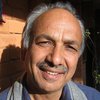Baburam Bhattarai is about to complete nine months as caretaker prime minister, without being able to hold elections for the constituent assembly by the promised date. Bhattarai seems to have finally relented to pressure and put a new condition duly endorsed by his Unified Communist Party of Nepal-Maoists (UCPN-M) — that the incumbent chief justice should head the electoral government.
But only two major constituents of the ruling coalition — the Maoists and the Madhesi Front — and less than half-a-dozen top leaders of the Nepali Congress (NC) and the Communist Party of Nepal-Unified Marxist Leninist (CPN-UML) endorsed the move. CJ Khil Raj Regmi finally backed out as the entire legal fraternity, including the Bar Association, opposed it, saying it would go against the principle of separation of powers and infringe upon judicial independence.
As the transition prolonged itself and political parties failed to elect a government, the army chief issued a loaded message last Wednesday, implying the army should be involved in solving some national problems. He also said that the Nepal army cannot be mobilised in a political vacuum. As the president and the caretaker PM come under severe attack from several parties, with high chances of organised public fury being directed at them, the army chief’s message will be debated more intensely.
Bhattarai knows that the CJ’s refusal will lead to his continuation. If the CJ accepts, it will be an ideological victory for the Maoists who have always wanted a captive judiciary and legislative supremacy. Apart from dangling the carrot of executive power before the head of the judiciary, Bhattarai’s cabinet has also doled out 3 billion rupees, 50 per cent more than demanded, to the army to buy aircraft, and 30 million rupees to the Federation of Nepali Journalists to build their offices. Clearly, Bhattarai resorted to appeasing the judiciary, army and the media body. The Maoists had never been in favour of an independent judiciary and media or an army not associated with the party.
It seems it was ultimately the Bar and the legal fraternity’s organised opposition that discouraged the CJ. Under pressure from the president, who first advanced this proposal, chairpersons of the NC and the UML agreed to go along with the CJ-for-PM proposal, overruling the opinion of the parties’ respective central committees. With the attempt fizzling out, UML chief Jhala Nath Khanal and NC president Sushil Koirala are facing protests from their parties’ rank and file. On the other hand, more leaders and parties have openly condemned the president.
With a total political and institutional vacuum, coupled with the inadequacies of the interim constitution, the president’s open involvement in politics and the judiciary being embroiled in more controversy will further increase the chances of chaos. There are fears this will provide greater scope for outside forces to increase their presence in Nepal, considered geopolitically important.
Robert Piper, set to relinquish his responsibility as UN resident in Nepal soon, tweeted on February 16 with the forecast that the parties would be forming an 11-member electoral cabinet headed by the CJ —something the negotiating parties brought about four days later, giving credence to the claim that the actual formation of the government was happening parallelly somewhere else. A UML central committee member tweeted that the CJ-for-PM was actually the proposal of India, the EU and the US. Amidst all this, China has asked the government to clarify its position on the self-immolation by Tibetan lama Thundu Dopchen in Kathmandu a week ago. An inadequate response will give China enough excuse to look into this sensitive matter its way. Nepal will have a new Chinese ambassador — an old hand at external security — in place of career diplomat Yang Houlan this week.
Nepal is paying for the prevailing statelessness and the parallel exercise against the basic norms of constitutionalism. And the fact that key actors are, even now, trying to gain more by demolishing the balance of power only signals they are in a self-destructive process.

Yubaraj Ghimire
Ghimire is a Kathmandu based journalist.
- Manmohan Singh And The Churn In Nepal
- Jan 08, 2025
- Why ‘Revolutionary’ Communist PM Prachanda Went To Temples In India
- Jun 08, 2023
- Why China Is Happy With Nepal’s New PM
- Jan 03, 2023
- Prachanda Sworn In As PM: New Tie-ups In Nepal, Concern In India
- Dec 27, 2022
- Young TV Anchor As Its Face, RSP Rise Takes Nepal By Surprise
- Nov 23, 2022












